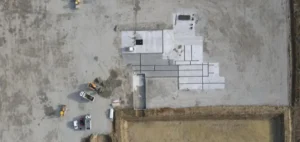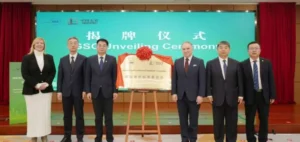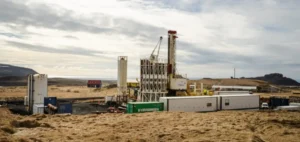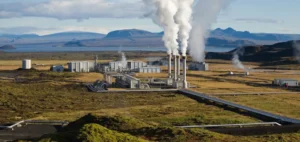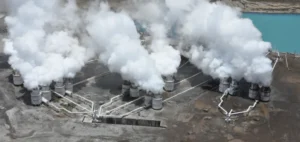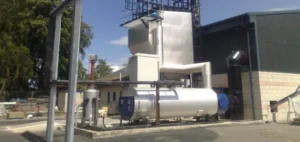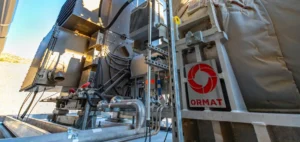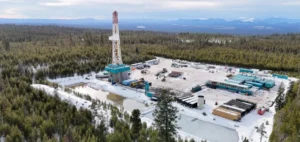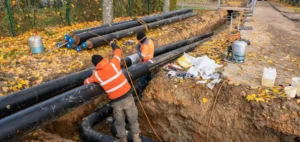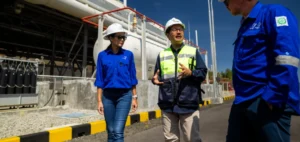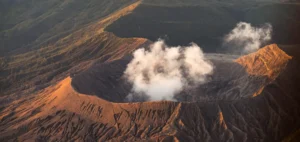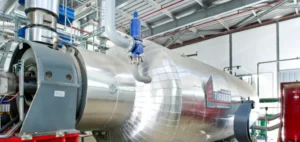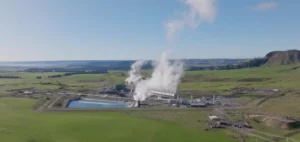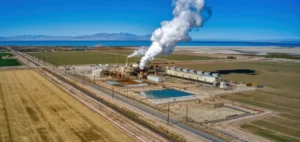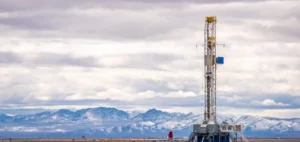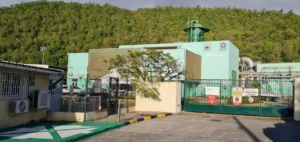Whitebark Energy, a junior oil producer, is now focusing its investments on renewable energies.
Thanks to stable production from its Wizard Lake oil project in Alberta, Canada, the company is financing geothermal and hydrogen projects in Australia.
This shift reflects a growing trend among energy companies to diversify their energy sources in response to environmental and economic pressures.
Wizard Lake project revenues
The Wizard Lake oil and gas project recently restarted production, reaching 242.6 barrels of oil equivalent (BOE) per day between July 7 and 14, 2024.
Whitebark Energy holds a 10% interest in the project, having sold a 90% stake to Conflux.
This sale enables Whitebark to benefit from regular revenues, while delegating operational responsibilities to Conflux.
The takeover of the Rex-1, Rex-2, Rex-3 and Rex-4 wells marks a crucial milestone for Whitebark.
The cash flow generated by these operations is reinvested in renewable energy projects, aligning the company’s financial objectives with its sustainability goals.
Investment in renewable energies
Wizard Lake revenues are essential to fund Whitebark’s geothermal projects, which are a priority for the company.
An A$500,000 placement with institutional investors, and a share purchase plan to raise a further $1 million, support these initiatives.
Whitebark is focusing on the development of its South West Queensland Hydrogen Hub, known as Cooper Basin.
With three geothermal exploration licenses covering 9,545 square kilometers, Whitebark is conducting a geological analysis and assessment of future markets to provide the base energy required for hydrogen production.
Geothermal potential
The International Renewable Energy Agency (IREA) ranks geothermal energy as one of the most economical renewable energy sources, with a levelized cost of electricity production (LCOE) of 39.5 USD/MWh.
Compared with the costs of onshore solar and wind power, geothermal energy stands out for its competitiveness.
This economic attractiveness reinforces the interest of investors and governments in this technology.
Det Norske Veritas forecasts a compound annual growth rate for the geothermal market of 13% between 2020 and 2030, and 7.5% between 2020 and 2050.
These favorable forecasts are prompting Whitebark to step up its investments in this sector.
Outlook and government support
In Australia, Whitebark is exploring government funding opportunities, including the recent A$6.7 billion Hydrogen Production Incentive Program.
Federal and state green initiatives provide additional support, positioning Whitebark advantageously in the energy transition.
Whitebark Energy’s shift to sustainable projects is an example of how energy companies can reorient their strategies in response to global environmental and economic pressures.
With strategic resource management and a forward-looking vision, Whitebark could play a key role in Australia’s energy landscape.
Whitebark’s ability to finance the energy transition from its traditional activities illustrates how companies can support sustainable development while maintaining profitability.
This model could serve as an example to other energy companies seeking to diversify their energy portfolios.


